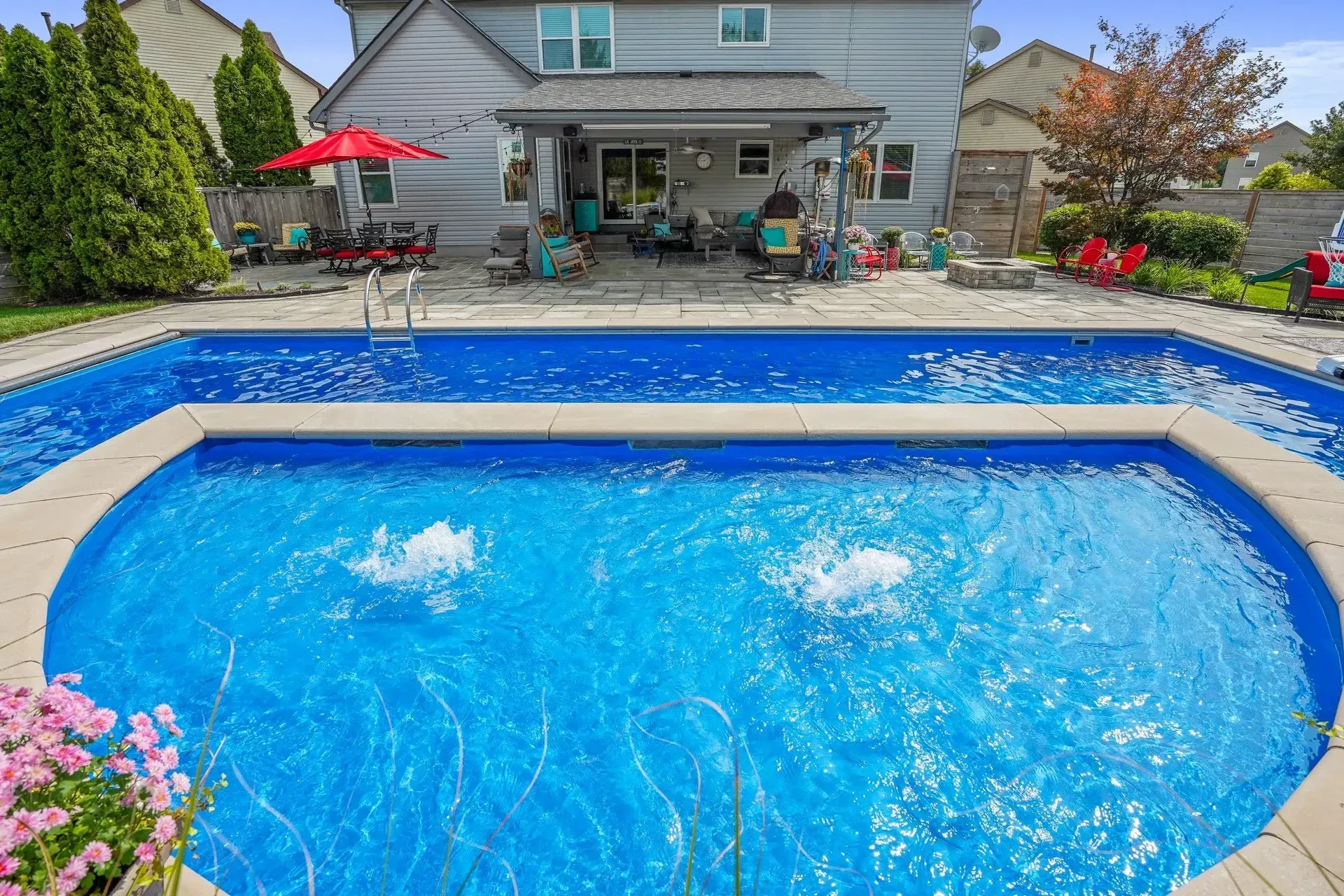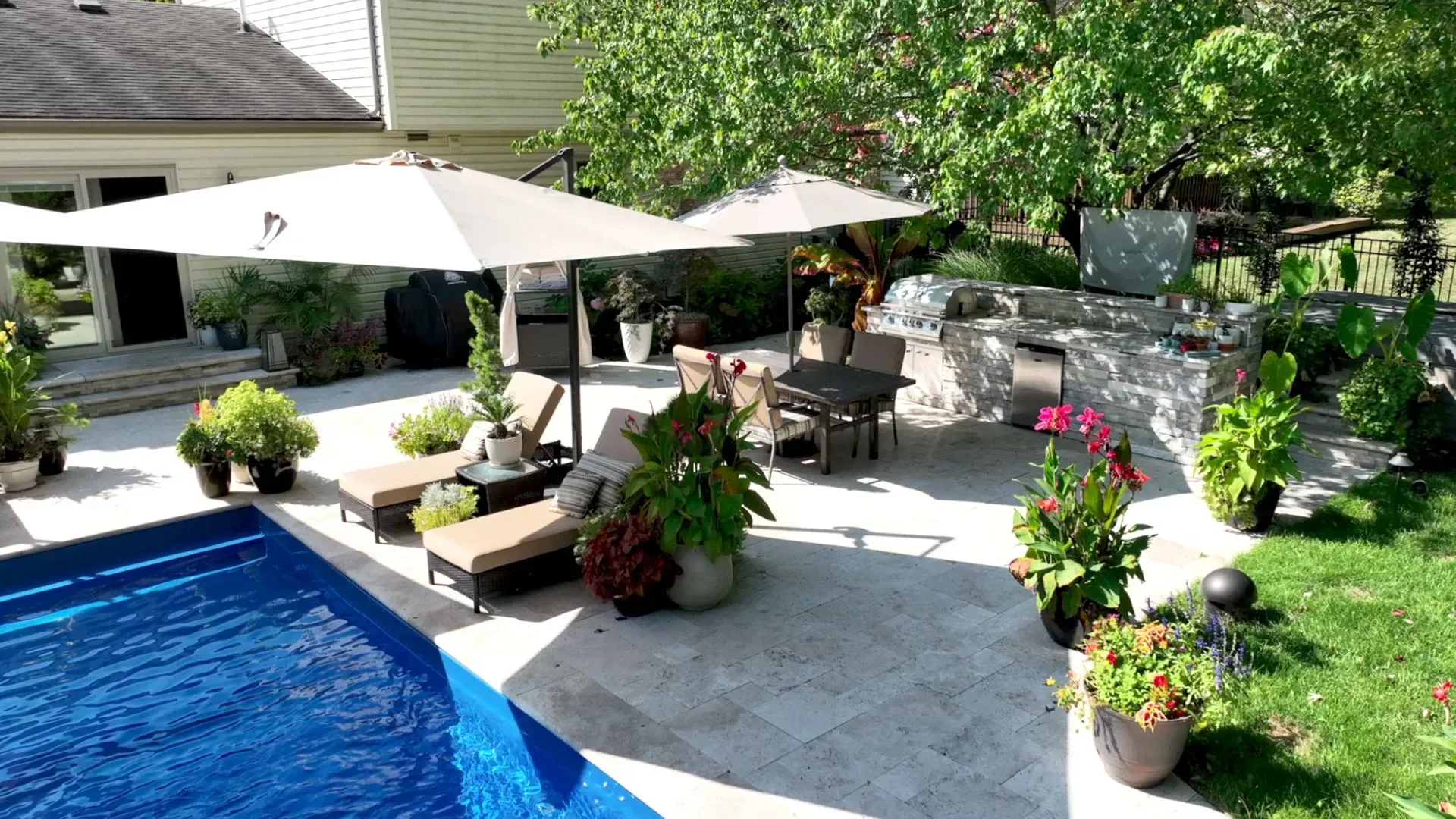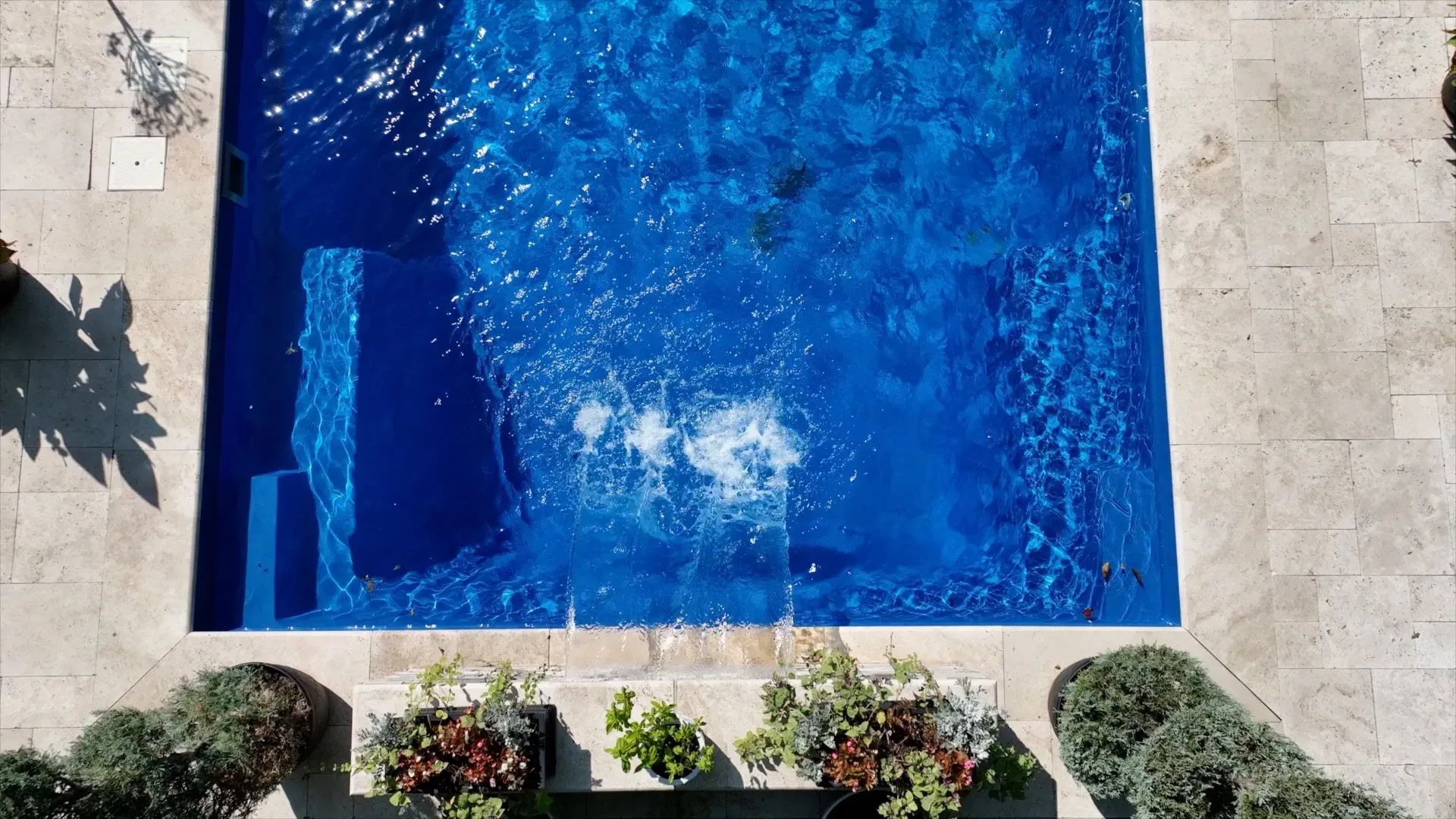Water Safety Month: 10 Tips to Stay Safe While Having Fun in the Sun!
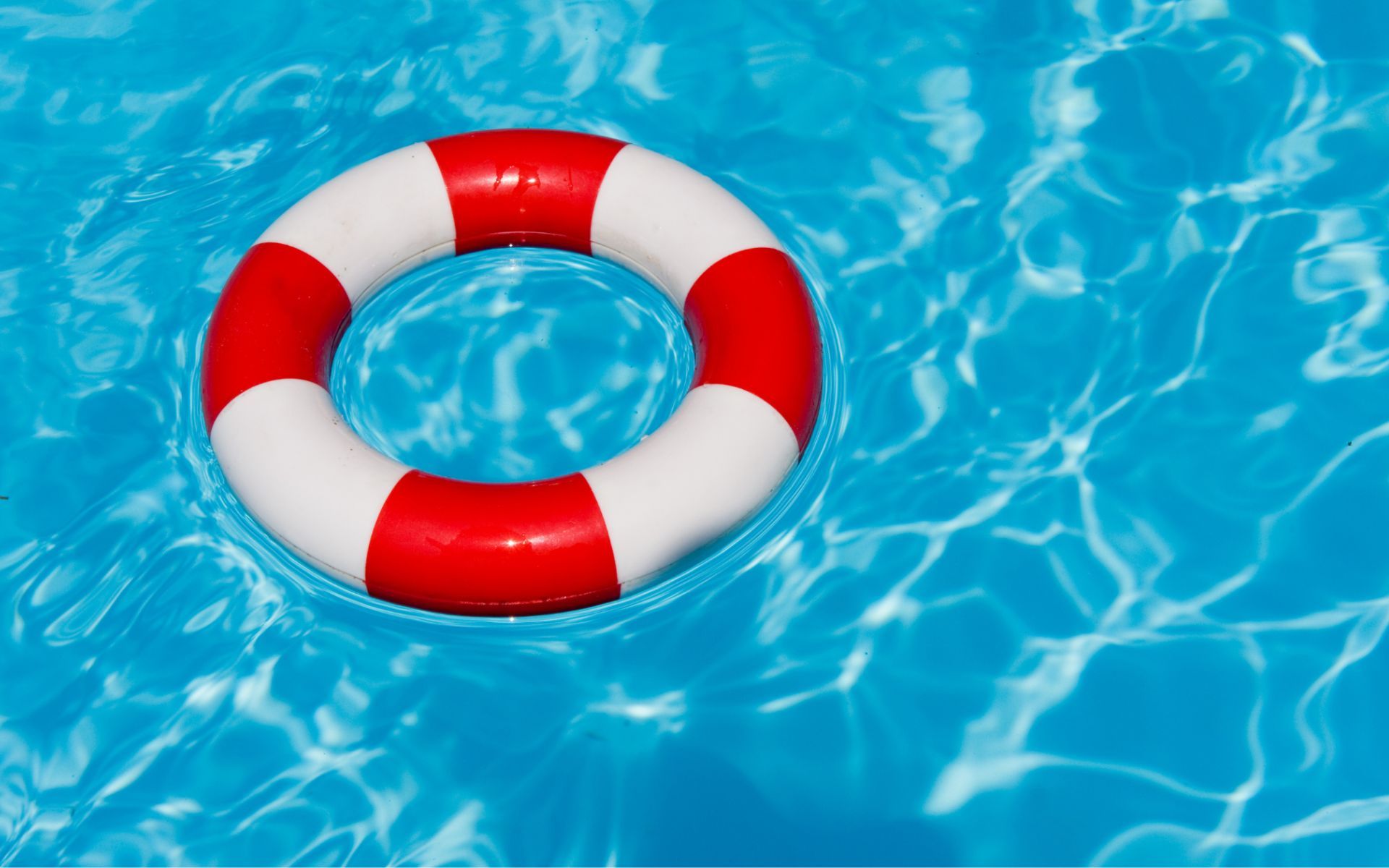
As the weather warms up and families start to spend more time outdoors, it’s crucial to prioritize safety - especially around bodies of water including pools. May is National Water Safety Awareness Month, making it the perfect time to review and enhance your home pool safety measure. At Omni Pools & Scapes, we’re committed to not only creating beautiful outdoor spaces, but also ensuring that they are safe havens for relaxation and fun.
Here are some essential tips to keep your pool area safe for every member of your family - especially kids and pets!
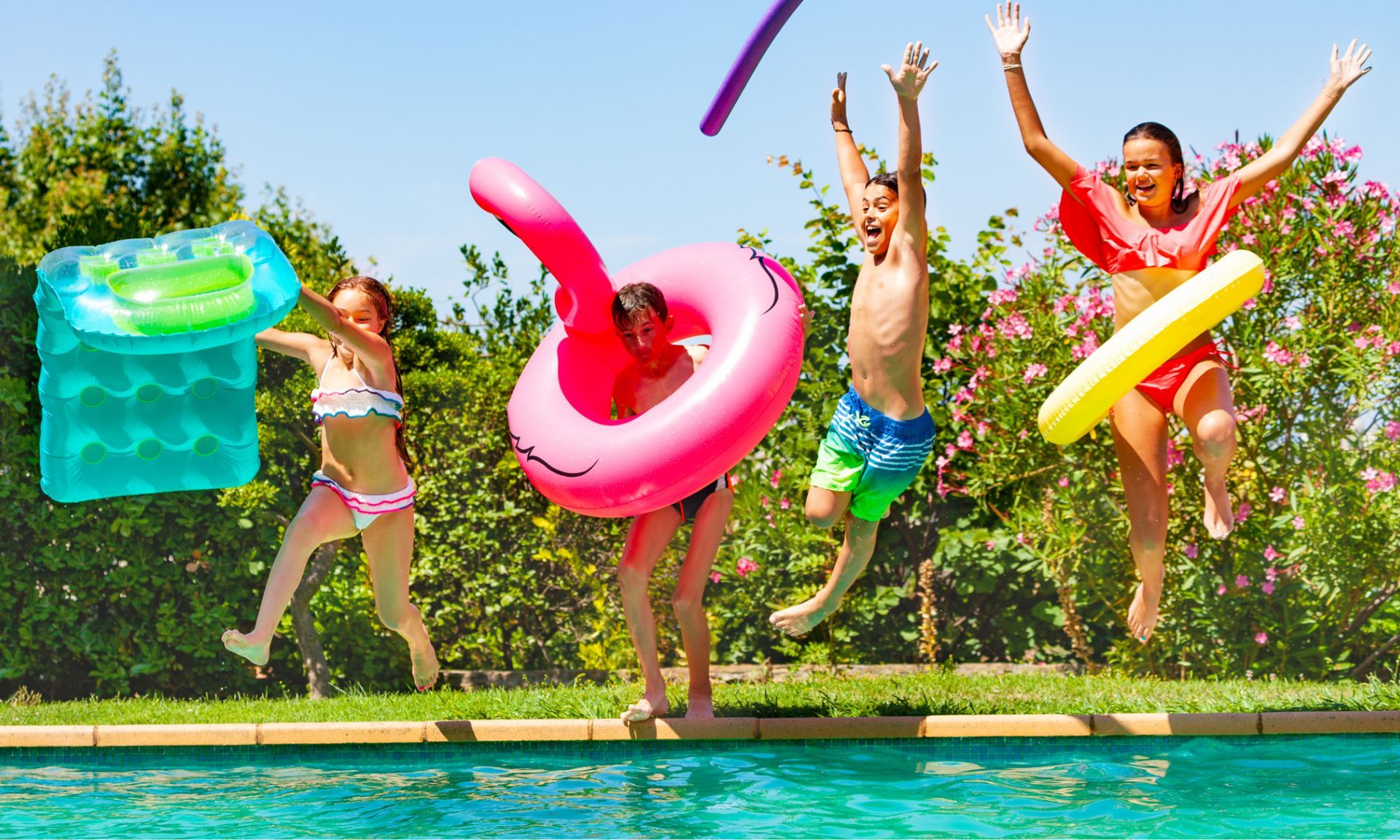
`1. Fence it Off: Install a secure fence around your pool area with a self-latching gate. This barrier can prevent young children and pets from accessing the pool area unsupervised.
2. Invest in Secure Pool Covers: Use a pool cover that is strong enough to support the weight of a child or pet. Ensure that it is properly secured and not easily removed.
3. Supervision is Key: Always supervise children when they are in or around the pool! Even if your children are older and experienced swimmers, it’s best to be cautious when it comes to enjoying the water.
4. Swimming Lessons: Investing in swimming lessons is a great way for your children to learn essential water safety skills.
5. Learn CPR: While we hope you never have to use it, knowing CPR can save lives in emergency situations. Taking a course can help you be prepared for any pool-related emergencies.
6. Remove Temptations: Keep toys, floats, and other items that may be attractive or tempting for your kids to venture into the pool or pool area when unsupervised.
7. Proper Drain Covers: Ensure your pool’s drain covers are compliant with safety standards to prevent entrapment accidents or injury.
8. Alarms and Safety Devices: Consider installing pool alarms or gate alarms to alert you if someone enters the pool area without supervision.
9. Emergency Preparedness: Have rescue equipment, such as a life preserver or shepherd’s hook, nearby in case of emergencies.
10. Regular Maintenance: Keeping your pool regularly cleaned and maintained will help to keep potential hazards at bay!
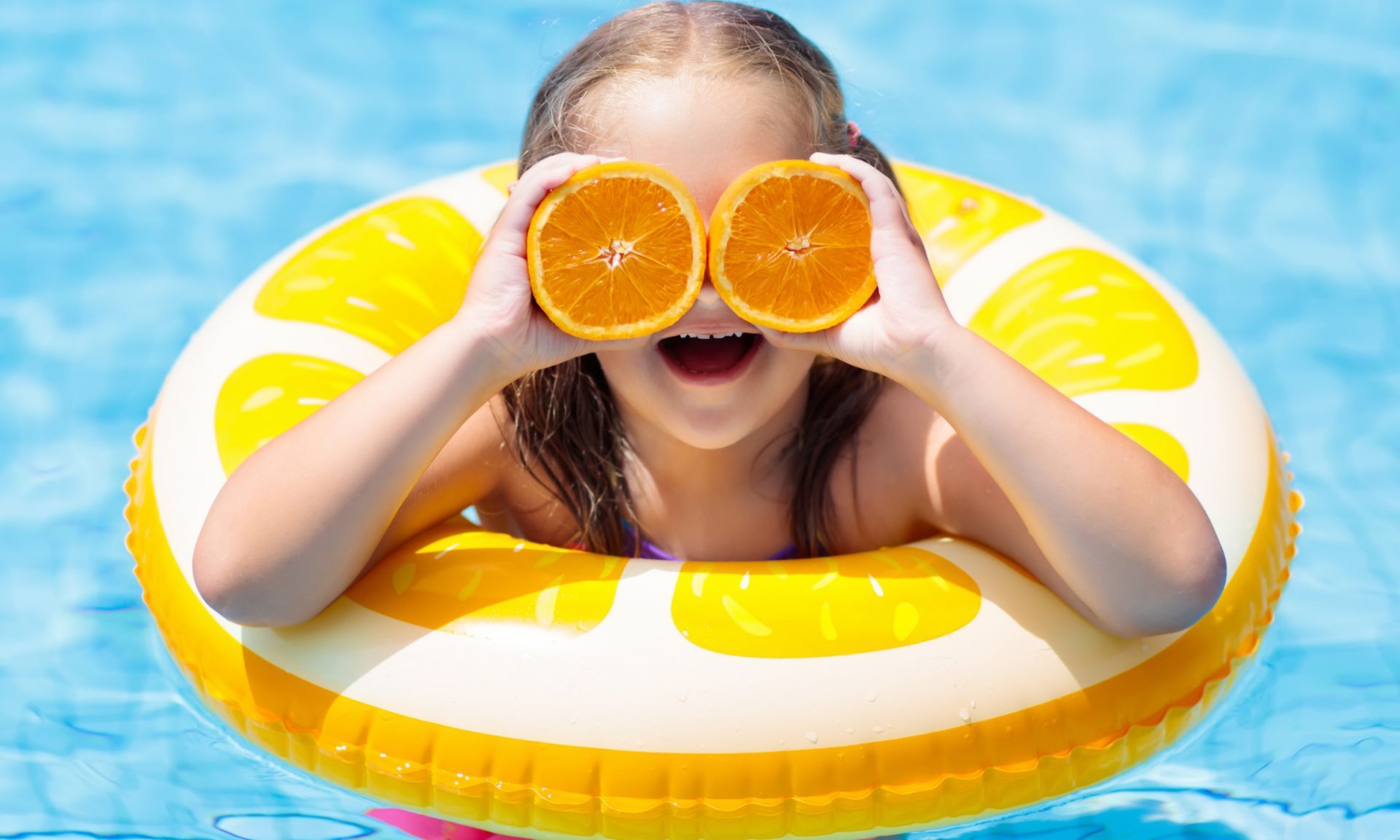
Remember, ensuring a safe pool environment is an ongoing commitment. By following these safety tips and staying vigilant, you can enjoy a safe and fun-filled summer around your pool. Stay safe, and happy swimming!
OMNI LEARNING CENTER
RECENT POSTS
